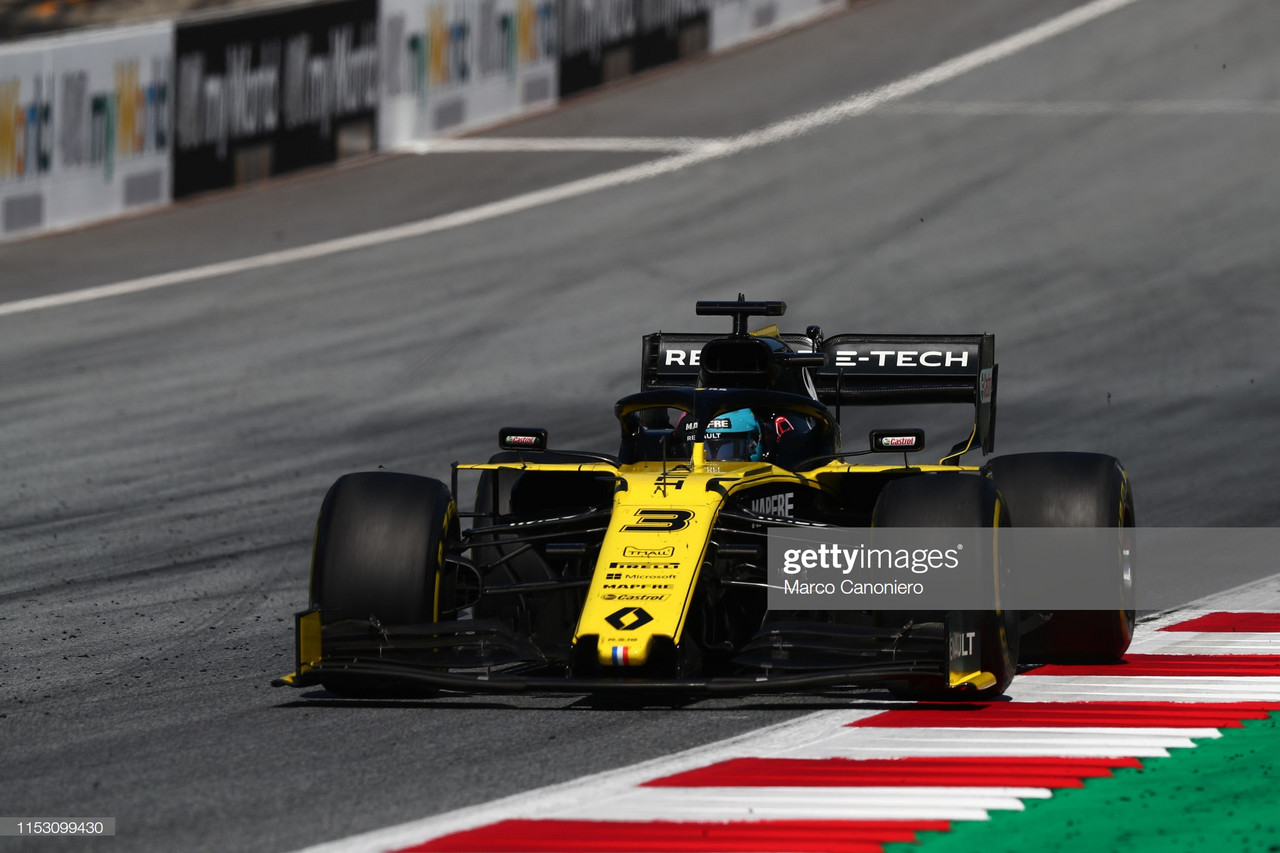Renault promised improvements for 2019 and revealed during pre-season testing that the targets it had set for its power unit, a weakness throughout the hybrid generation, had been met.
To enhance their statement of intent, Renault acquired Daniel Ricciardo from Red Bull. The Aussie outlined that Renault’s objective was to, “be fourth or better, but it is really to try and hone in on that gap to the top three. It’s not going to happen overnight, but absolutely the target this year is to close it in, close it in, and just try to develop the car.” Long story short, that objective has failed to materialise.
Where has it gone wrong?
At this stage last year Renault had 82 points. They now currently sit P6 in the constructors' standings, having scored just 39 points and having failed to score in a number of Grand Prix's. What has gone wrong?
In recent years, Renault have consistently made gains on the track, with an inferior power unit the main instigator in their troubles. Despite a substantial investment into the RS19, the car remains slower than Haas, has been vaulted by customer team McLaren, and is only marginally faster than Alfa Romeo and Toro Rosso. In fact, it is McLaren’s gains, with the same power unit, that has highlighted Renault’s malaise.
Their research and development into upgrading their engine have come at a consequence to their chassis, with only the Williams operating a worse chassis than the one that Renault currently boast.
Renault’s opening four events swayed from the miserable to the disastrous. A late double failure in Bahrain cost it a double points finish, while in Azerbaijan the R.S.19 simply lacked any connection to the tarmac.
A sizeable update package, along with an accelerated introduction of the more powerful B-Spec engine, arrived for France, but it did not haul Renault clear of the midfield.
After a miserable time in Austria it shelved some of the updates for Britain and found a performance gain. Renault's inability to upgrade a failed package is an alarming concern for a team with title aspirations in the coming years
Hungary was another forgettable weekend and with no large update package set to arrive till at least Russia or Japan, Ricciardo and Nico Hulkenberg will be forced to wait to see if there are any signs of encouragement. Based on recent introductions it’s by no means guaranteed that it will deliver the desired step. Performance setbacks and reliability issues have also been hampered by operational weaknesses, with Ricciardo critical of Renault’s passive strategies in Spain and Monaco, which he felt cost him a shot at top ten.
Renault should still have sufficient resources and ability to overhaul Toro Rosso. But its plateauing, and re-adjustment of time frame for its ambitions, raises concerns. It has already missed its initial three-year podium target and looks no closer to the top three than it was at stages in 2017.
Driver disappointment
Ricciardo’s decision for a fresh start hasn’t exactly paid dividends so far. Ricciardo conceded in Bahrain that he was still shaping his driving style to his new environment. A simplified approach for China aided his progress and the Aussie has since possessed an edge over Hulkenberg, but there have been some errors and setbacks.
His start in Australia was a horror show, while his clumsy move and reverse on Daniil Kvyat in Azerbaijan was amateur hour that impacted his Barcelona weekend too. He can, though, consider himself unlucky not to score more in Monaco, was harshly penalised in France and was removed from the Germany chaos prematurely thanks to an exhaust failure.
When Renault truly shone in Canada he grasped his chance to qualify fourth, battle Valtteri Bottas, before finishing a fine sixth. Hopefully, Renault can escape its mire so that Formula 1 can be reminded of Ricciardo’s ability else he risks wasting the best years of his career.
Only 26 drivers in Formula 1 history have started more grands prix than Nico Hulkenberg. 12 of them are World Champions. Most of the others are multiple race winners. Hulkenberg has yet to stand on a Formula 1 podium and 2019 has been another campaign of missed chances and frustrating setbacks.
Ricciardo’s signing was a warning for Hulkenberg and presented him with the opportunity to assert his authority and prove that he was the one who should be given the backing. That he has had a distinctly average season, with Renault hardly overly desperate to retain his services for 2020, rather typifies his career.
His helpless slide into the barriers in Germany was frustratingly predictable. Whenever he gets himself into a strong position in an unpredictable race it somehow comes undone.
This is on course to be Hulkenberg’s worst season results-wise since his rookie campaign; he has been a victim of wrong place, wrong time, wrong era, but also of misjudgements and missed chances.









































